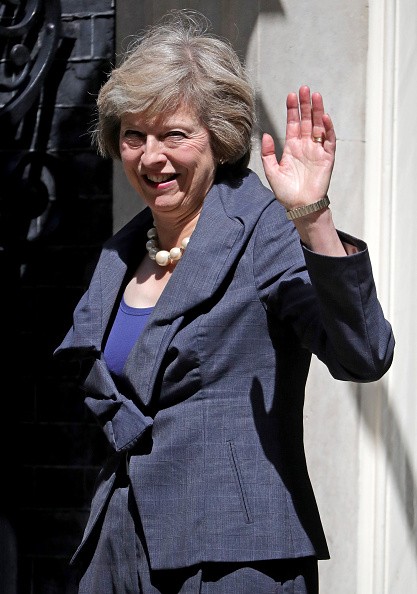Theresa May has been confirmed as United Kingdom's new prime minister, the second female to hold the position after Margaret Thatcher. She then started forming her new cabinet by naming a few appointees on her first day in office.
May, the leader of the Conservative Party, has already named six cabinet members on her first day at 10 Downing Street, BBC News reported.
The new prime minister appointed leading Brexit campaigner and former London Mayor Boris Johnson as new foreign secretary and Liam Fox as new secretary of state for international trade. Johnson and Fox were her chief rivals in her bid as Conservative Party head.
Former Foreign Secretary Philip Hammond was named new chancellor of the Exchequer, which oversees the British Treasury, and David Davis was appointed as the new Brexit secretary, a newly created post also called the secretary of state for exiting the European Union.
May also tapped Amber Rudd, former secretary of state for energy and climate change, to become the new home secretary. Meanwhile, Michael Fallon retains his post as defense secretary.
According to the news agency, May is expected to continue to fill out her new cabinet within the week. She still has to announce new secretaries of state for education, health, and work and pensions, among other posts.
CNN reported that on her first public speech as prime minister, May vowed to continue her predecessor's true legacy of social justice. She stated that "David Cameron has led a one-nation government" and that it is in this spirit that she intends to lead.
May addressed the working class, the poor, the women, the youth, and those with mental health issues and promised that her government will be driven by their interests and not by those of a "privileged few."
She further reiterated that her party values unionism between all of the citizens and not just among England, Scotland, Wales, and Northern Ireland.
CNN noted that May has a challenging job as prime minister as there are pressures to start negotiations for Britain's exit from the European Union and to save a plummeting economy. She is also faced with the task of uniting a nation that got divided over the Brexit referendum, where 52 percent had voted to leave EU and 48 percent voted to remain.
Watch May's first speech as prime minister in the video below.



























